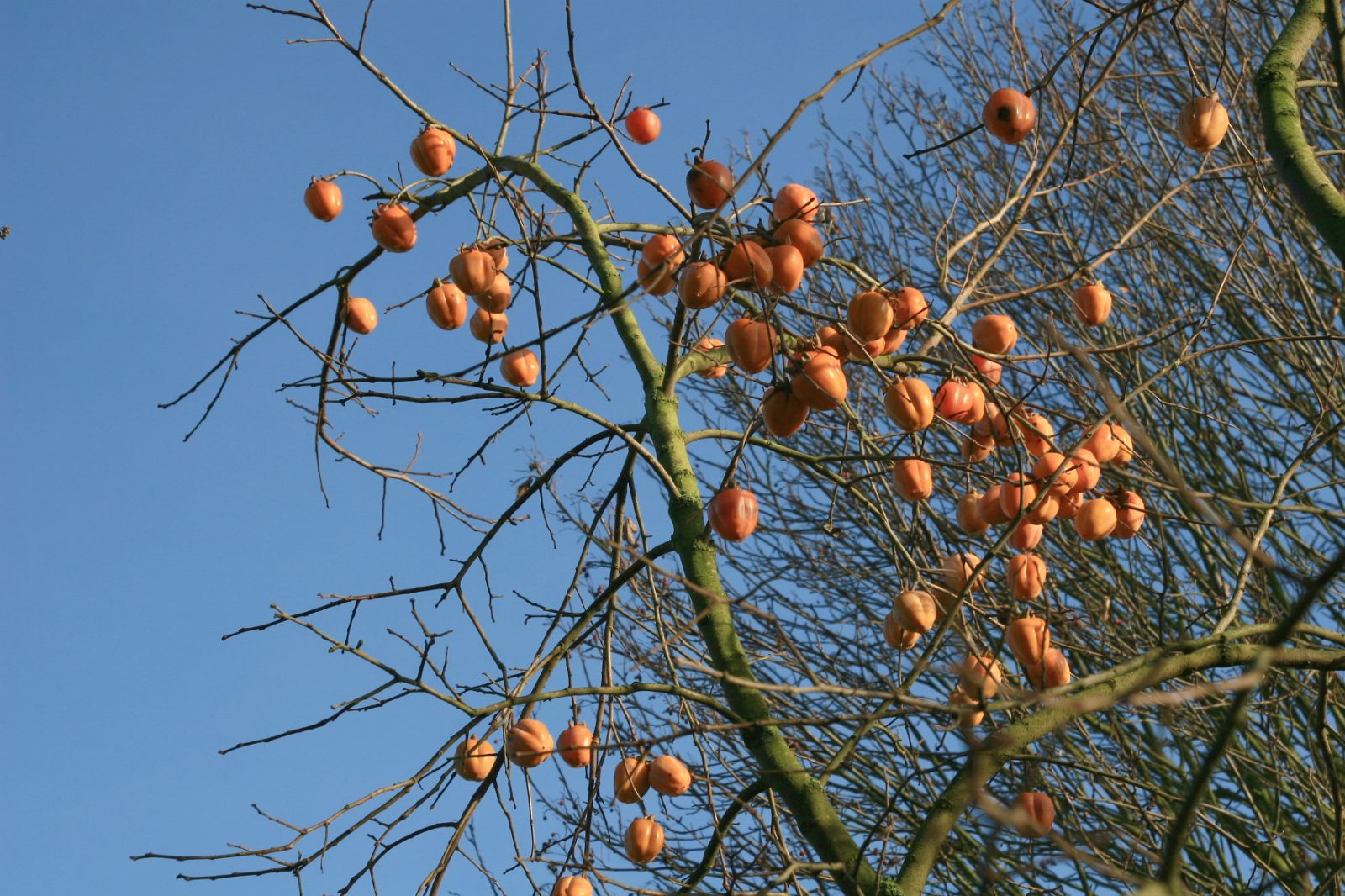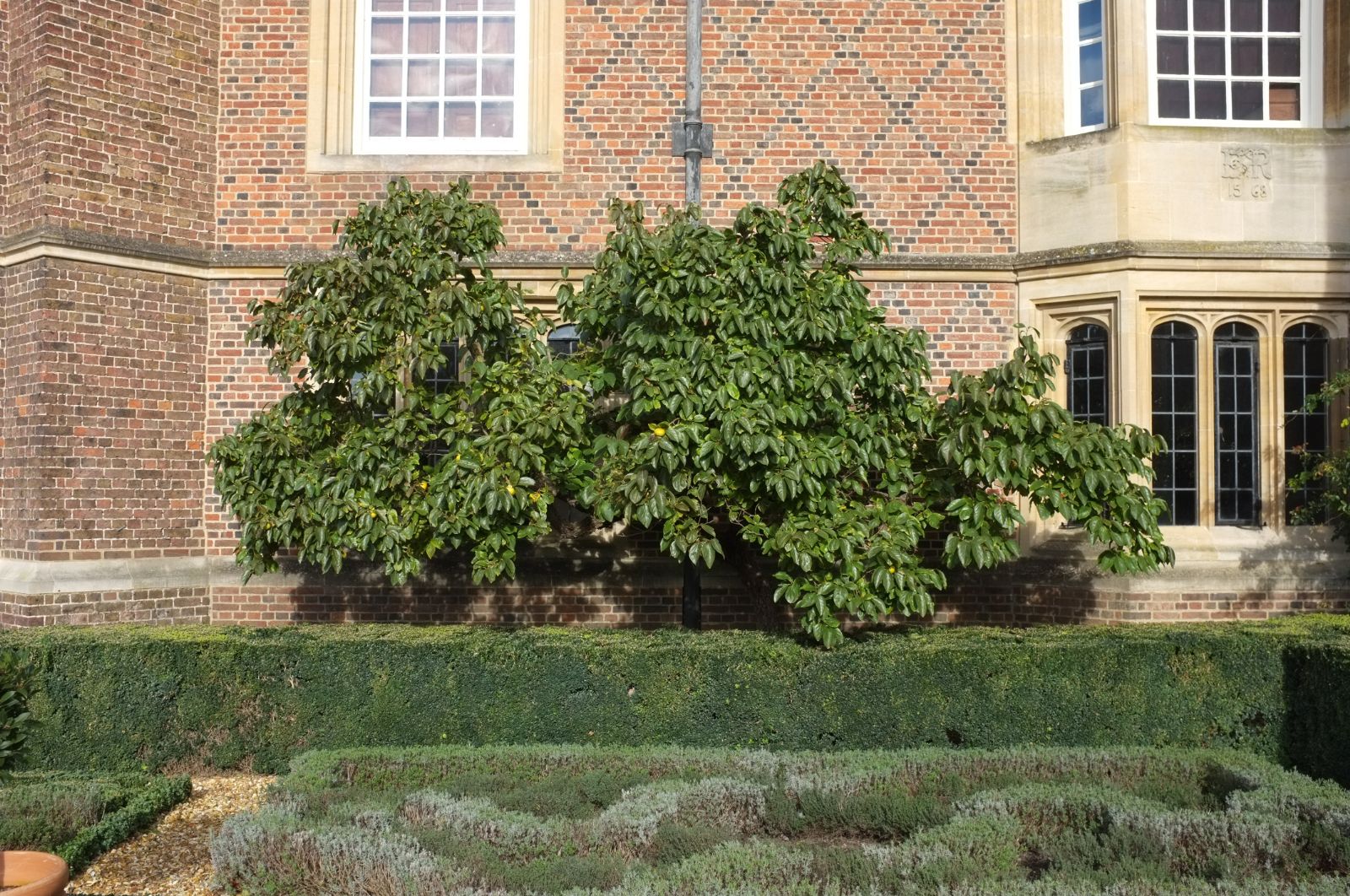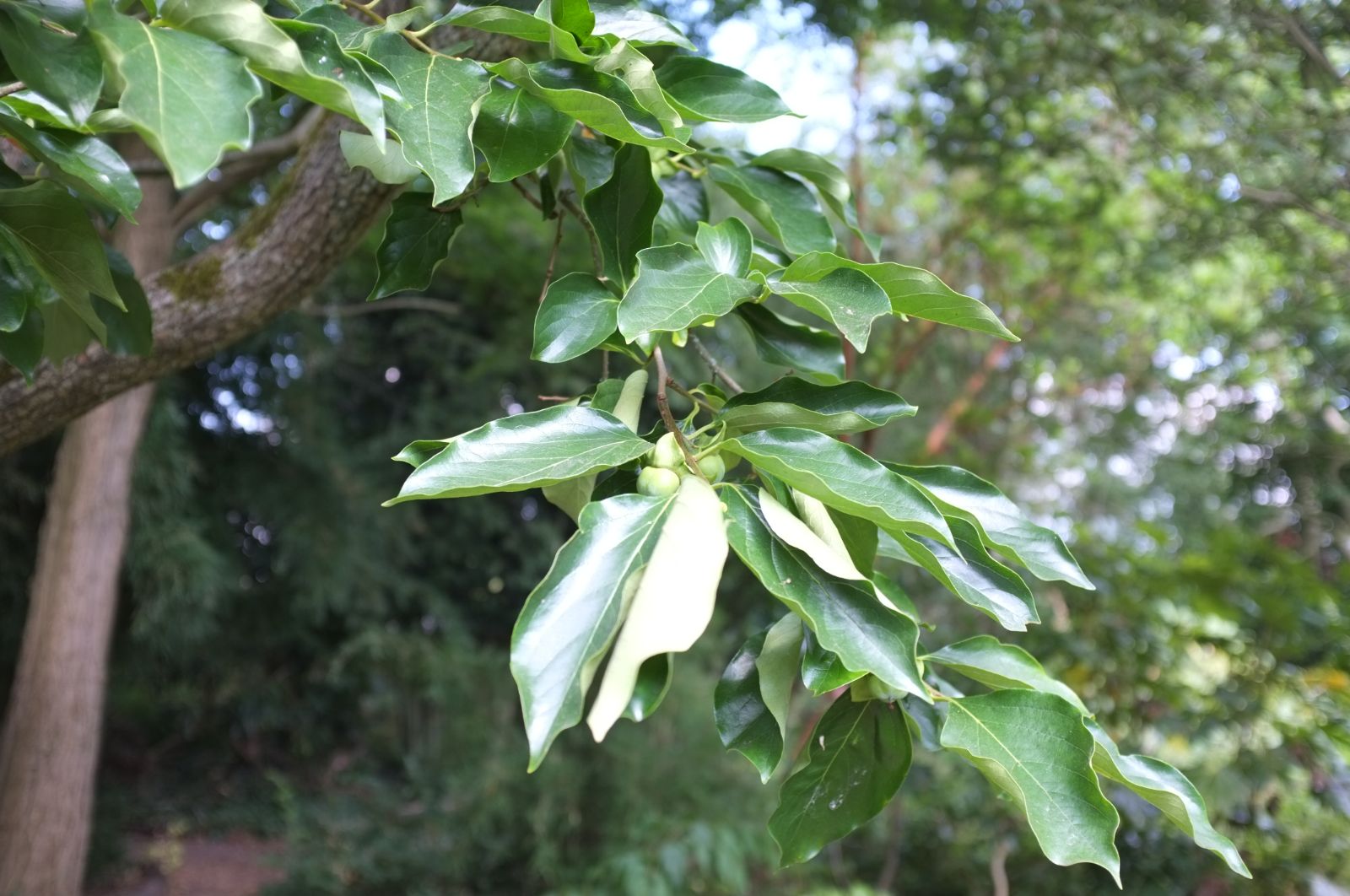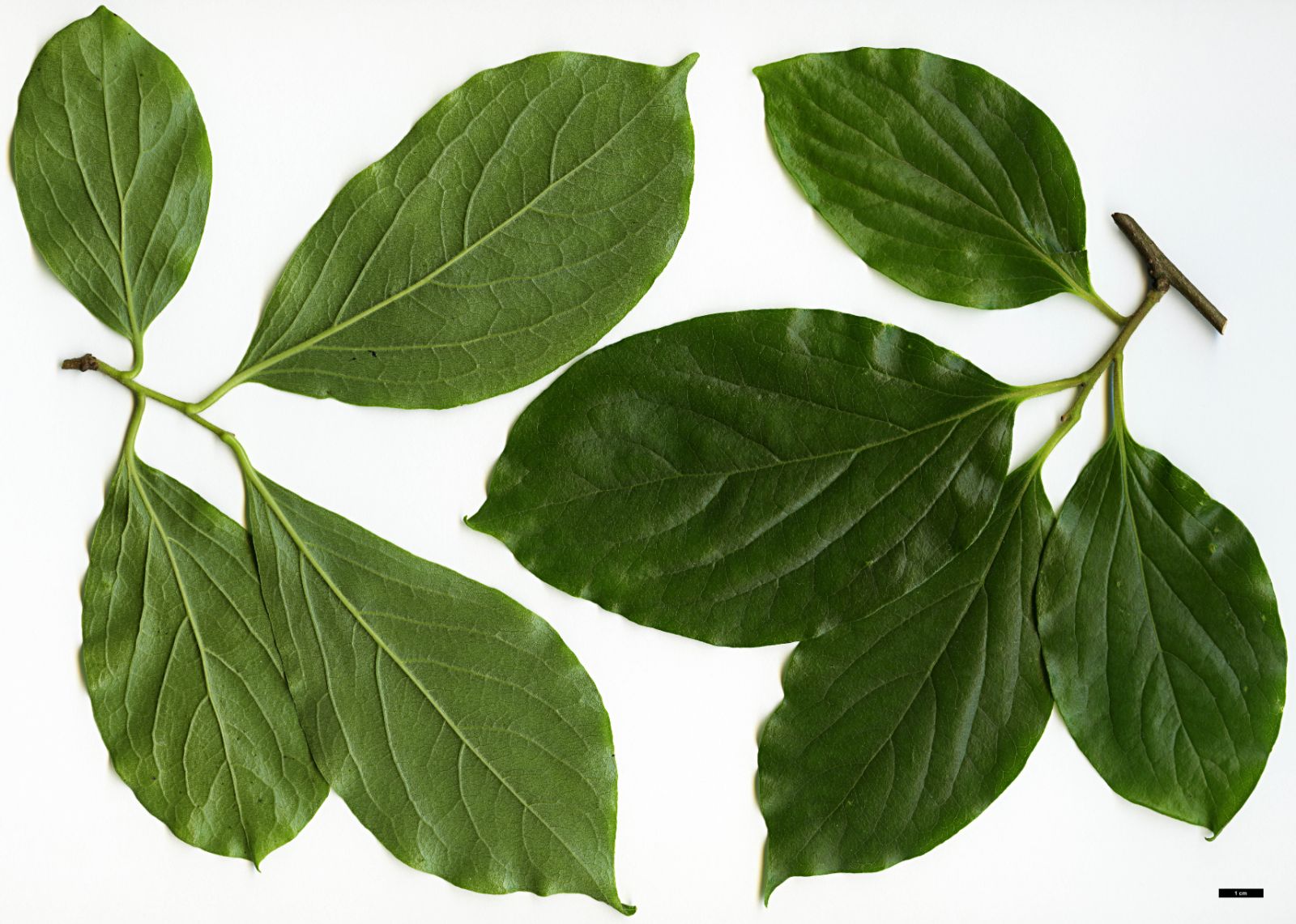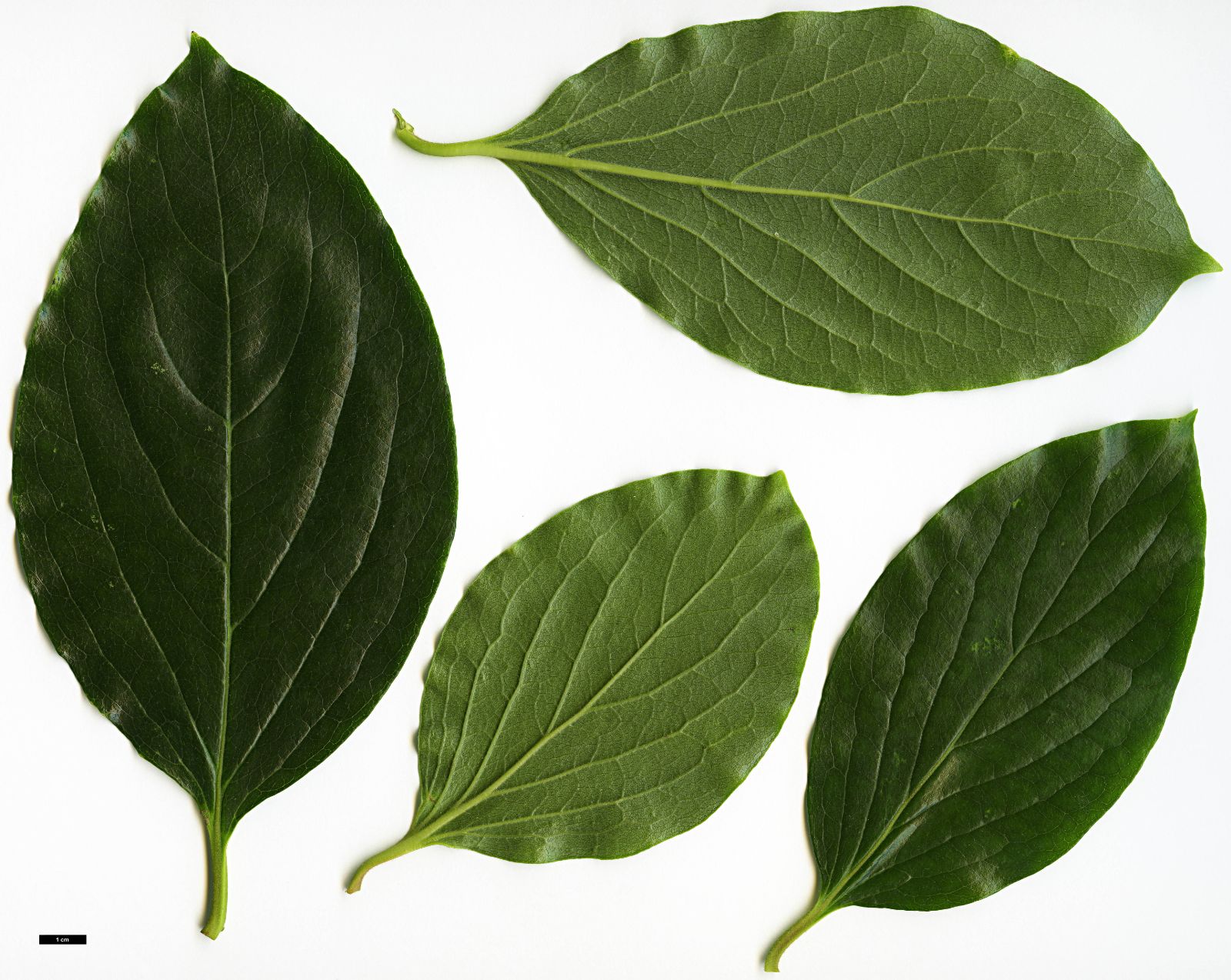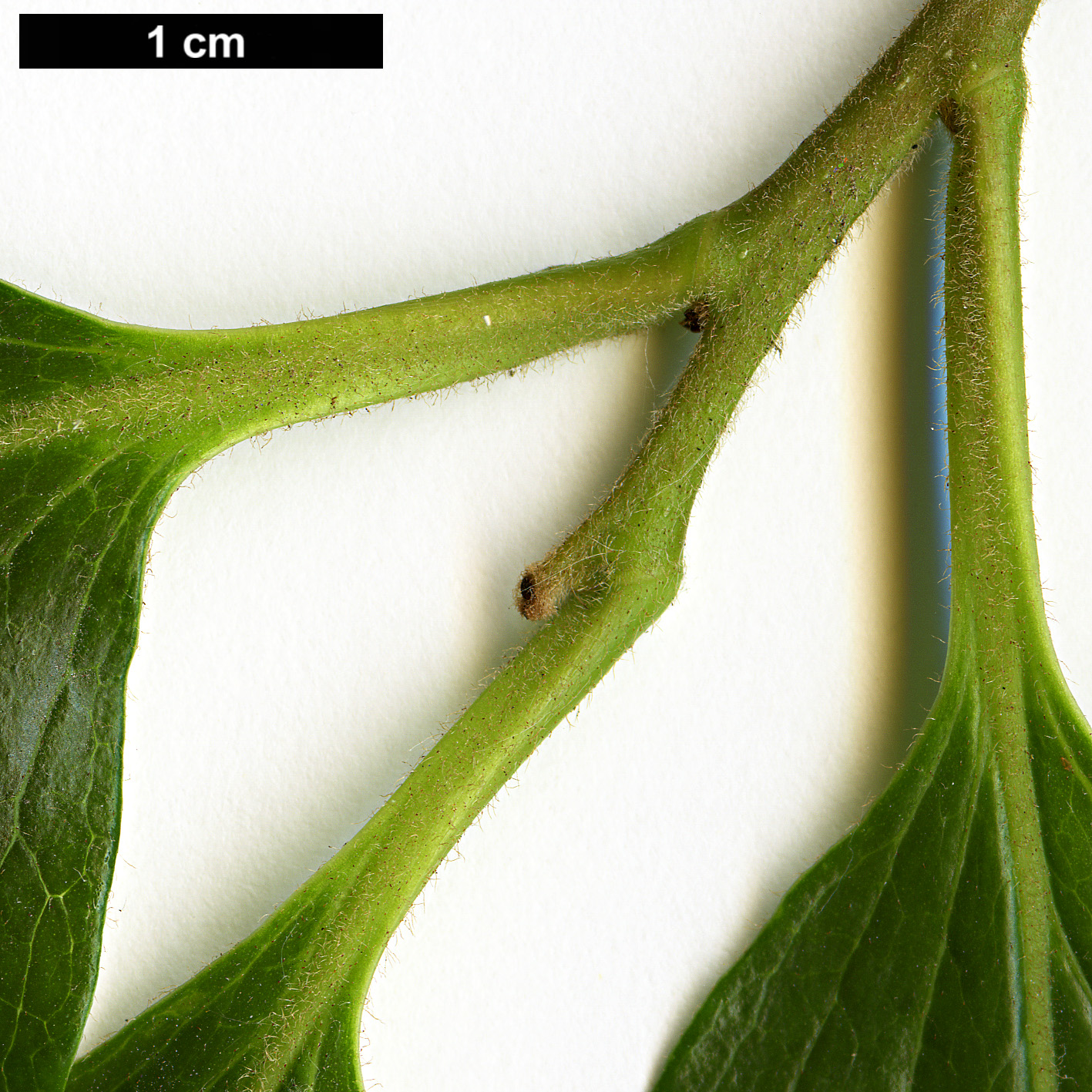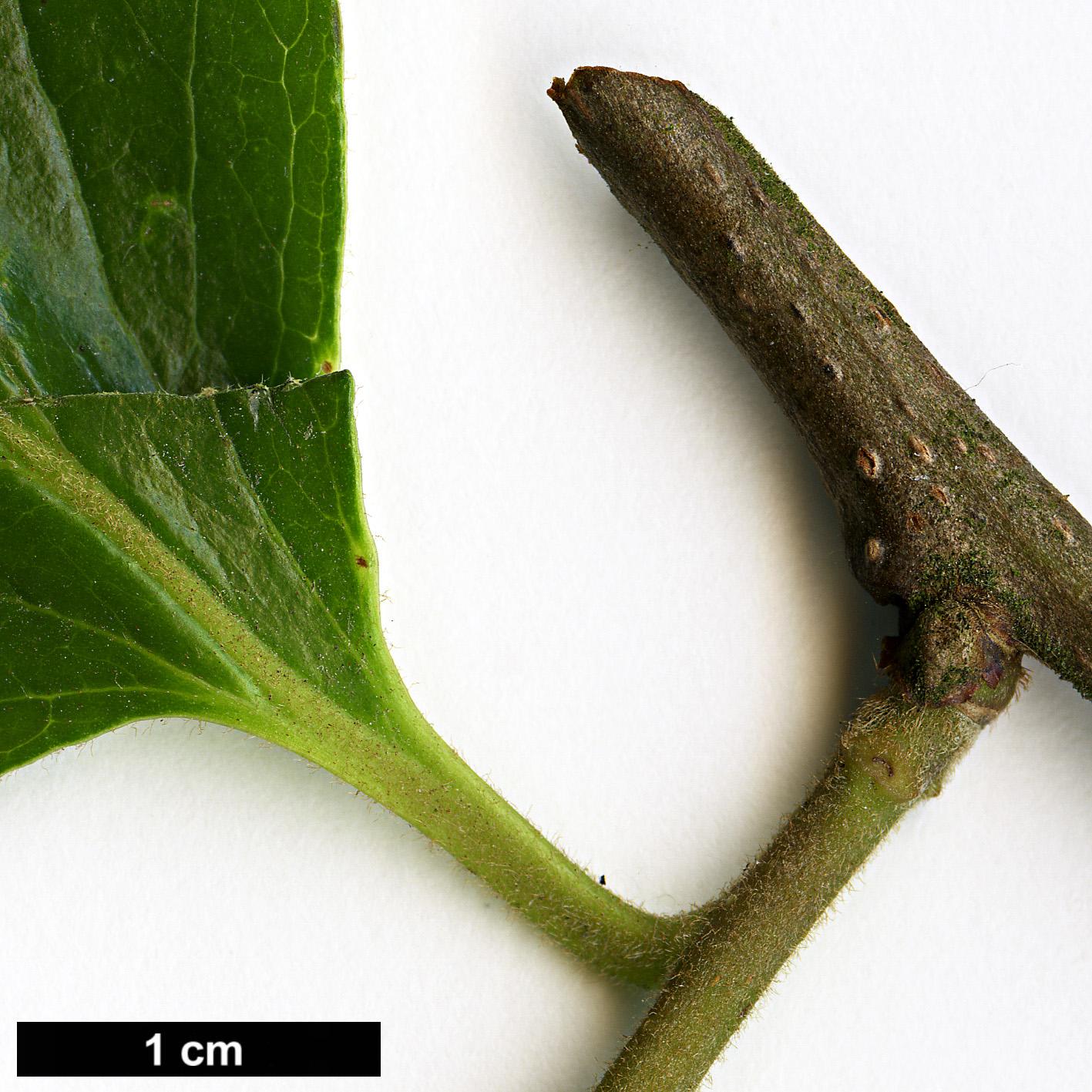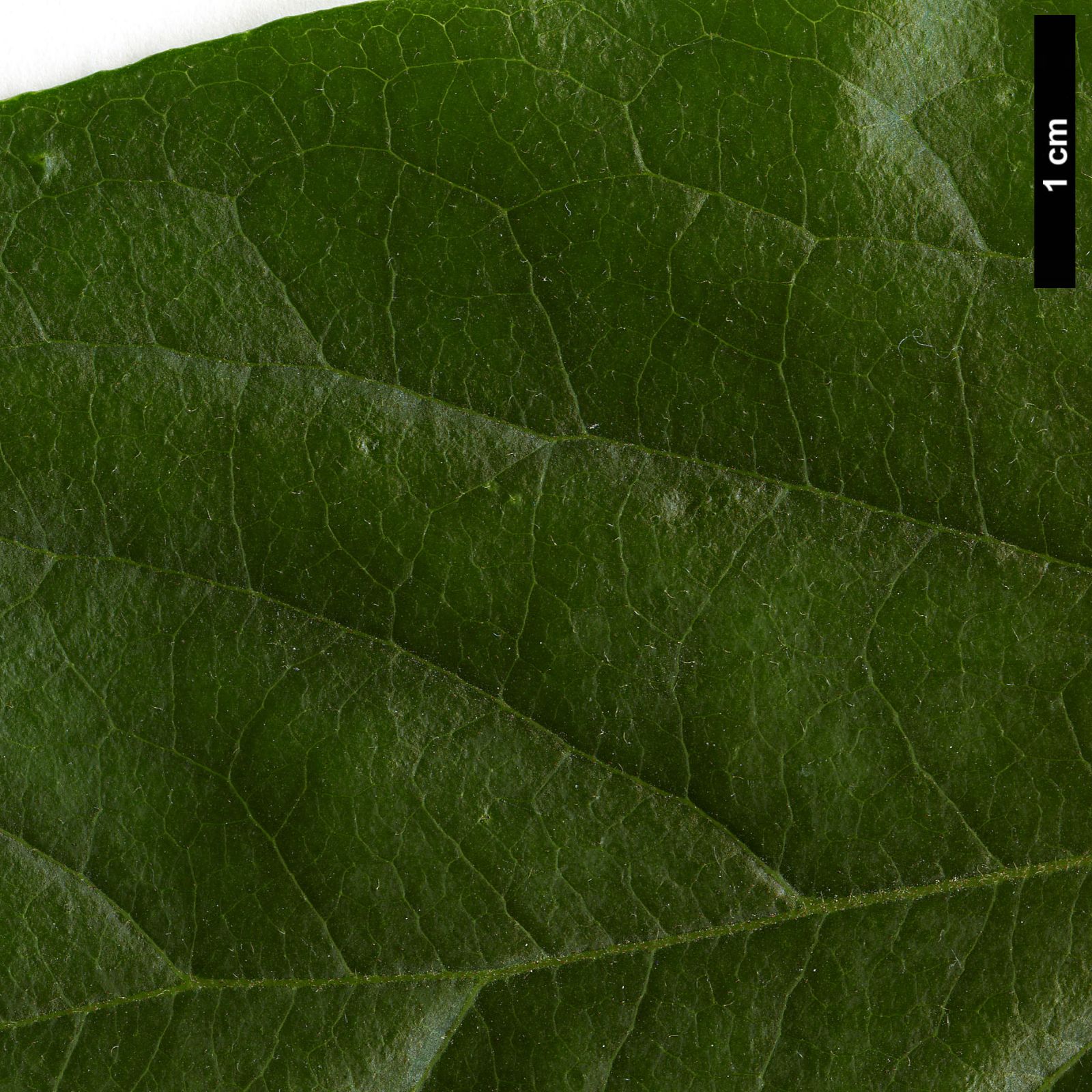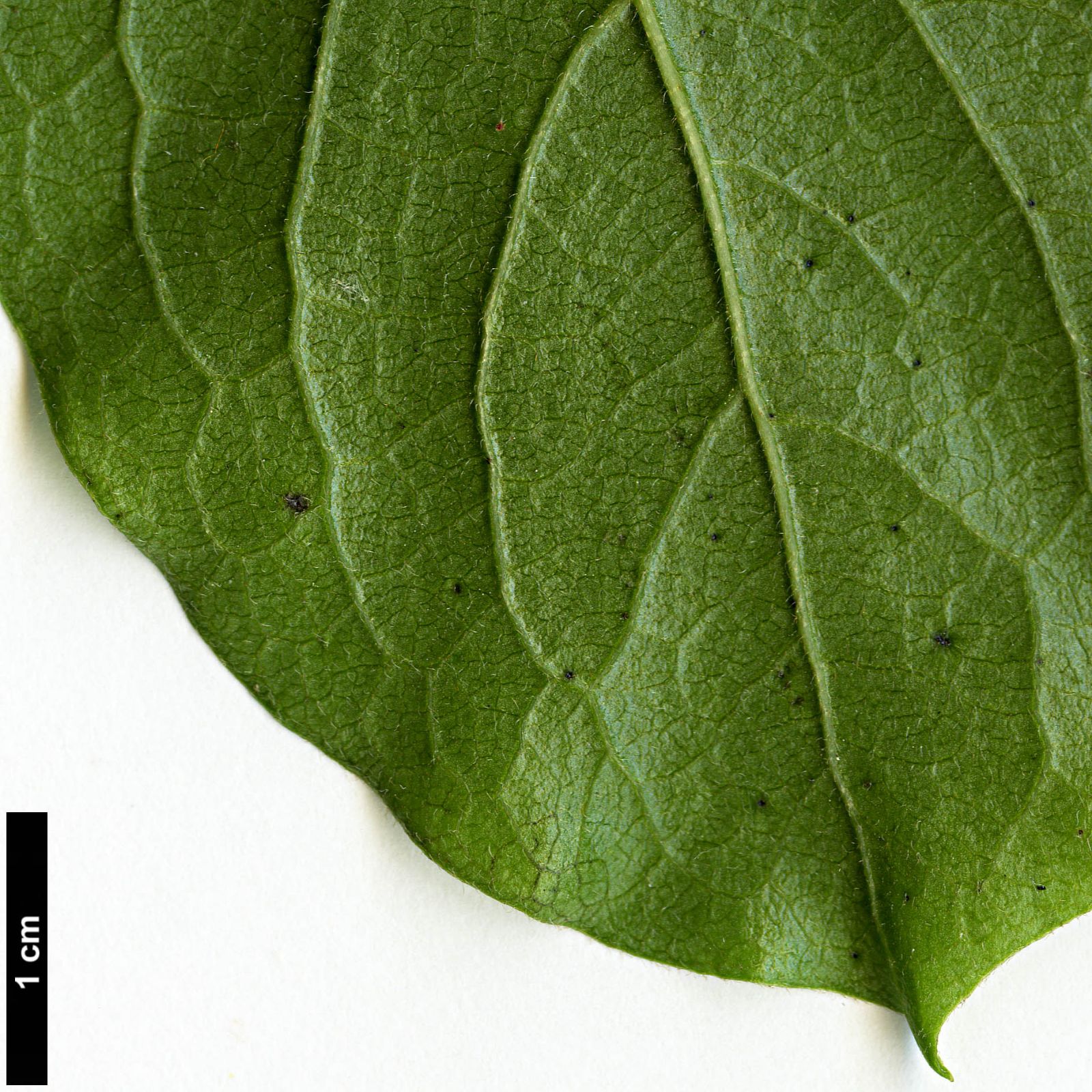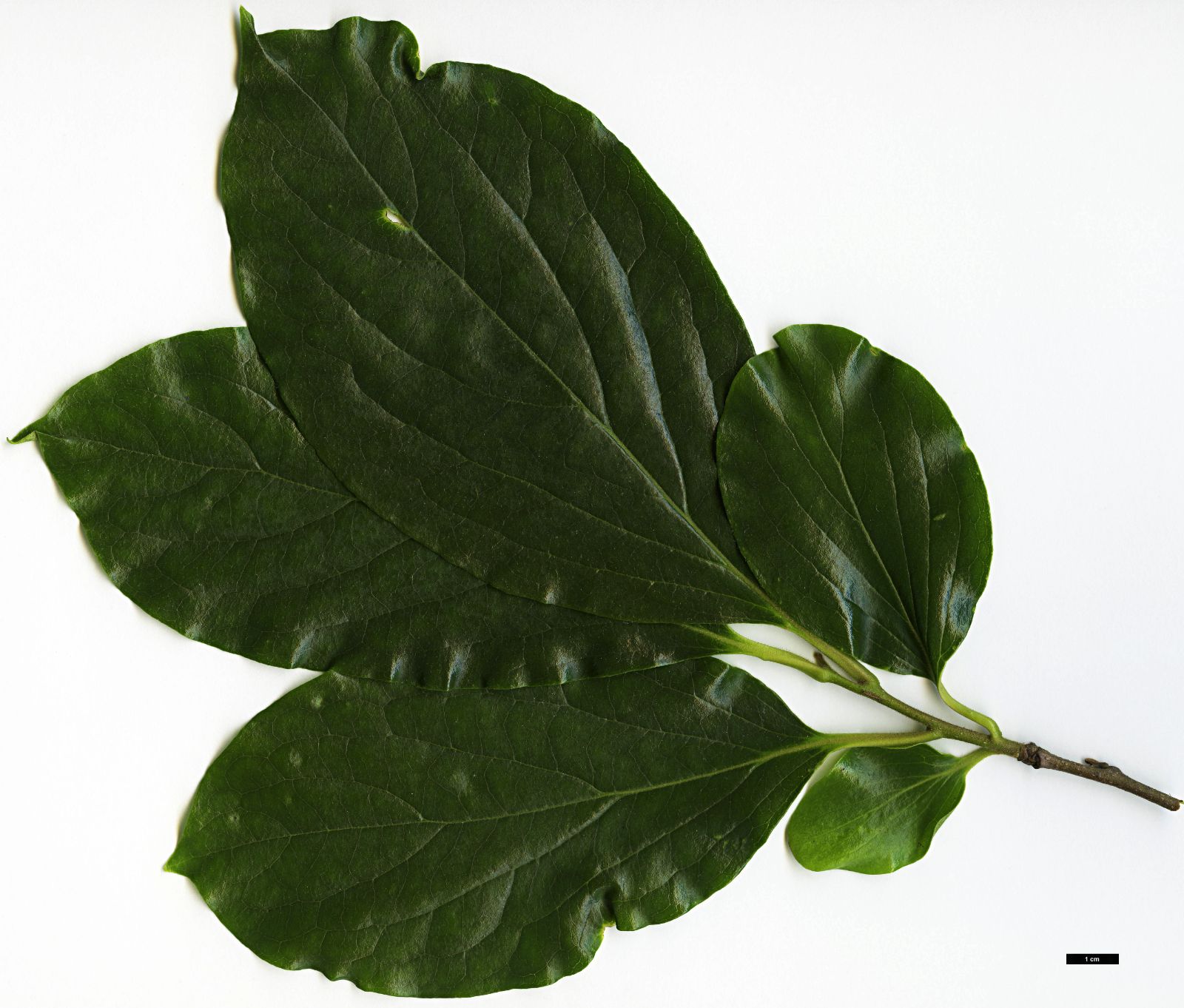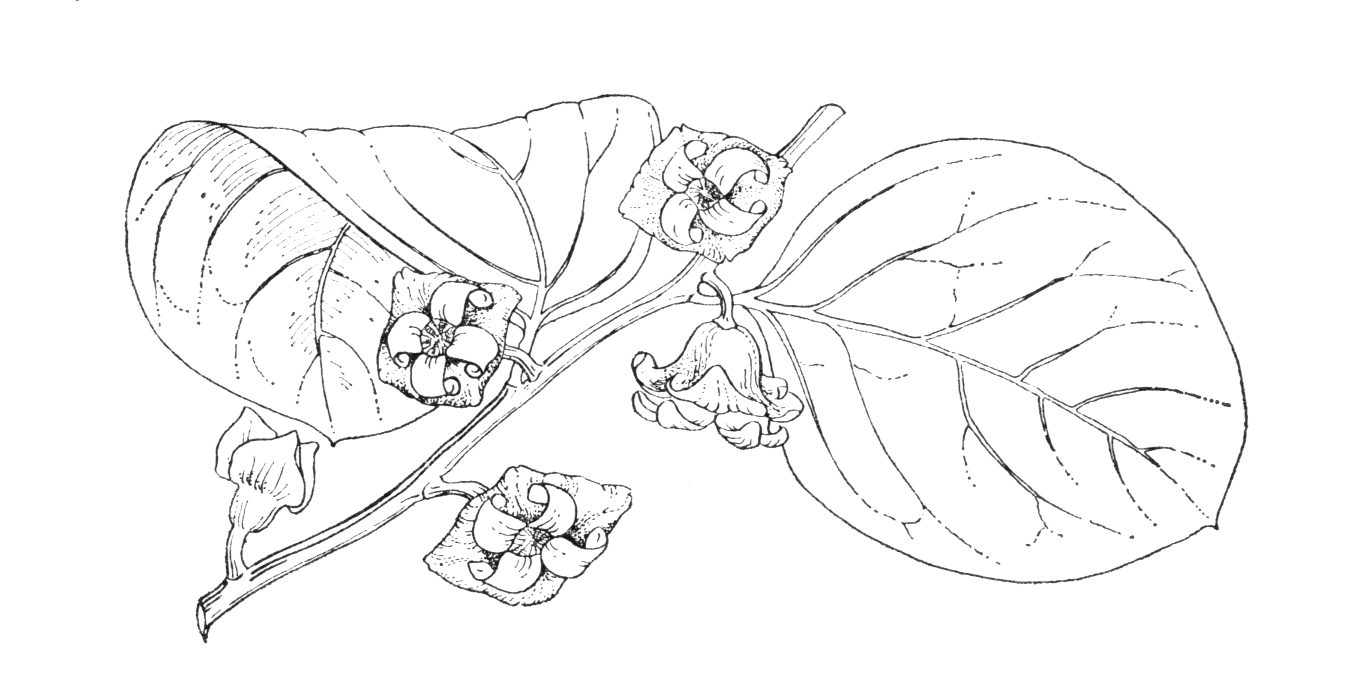Diospyros kaki
Credits
Article from Bean's Trees and Shrubs Hardy in the British Isles
Recommended citation
'Diospyros kaki' from the website Trees and Shrubs Online (treesandshrubsonline.
Genus
Common Names
- Kaki or Chinese Persimmon
A deciduous tree, ultimately 20 to 40 ft high, with more or less downy young shoots and winter buds. Leaves oval, 3 to 8 in. long, 11⁄2 to 31⁄2 in. wide, tapering at both ends, strongly veined, soon glabrous and glossy green above, more or less downy beneath. Fruit 3 in. wide, yellow, and of the shape of an average tomato, supported by the persistent calyx, 2 in. across. Bot. Mag., t. 8127.
Native of China; long cultivated in Japan, where several scores of varieties have been raised, remarkably diverse in size of fruit. Kakees are now being extensively cultivated in the south of Europe, and the fruits sent from there are becoming well known in London shops as ‘persimmons’. As regards the British Isles, it or some of its forms, for it is difficult now to distinguish the type, are perfectly hardy in the milder parts. Canon Ellacombe obtained fine crops in his garden at Bitton, from trees trained against a wall. At Kew, splendid crops are obtained in a cool greenhouse, and a tree on a south wall there bore many scores of fruits in 1935. This species is well distinguished from the other hardy ones by its large leaves and fruit and by its globose winter buds.
From the Supplement (Vol. V)
This species has fruited frequently in the open at Kew. There are many cultivars grown commercially in Japan, the USA and elsewhere. Some need crosspollination, but others produce parthenocarpic fruits, which are seedless. Such is the cultivar that yields the so-called Sharon fruits, imported from Israel.

